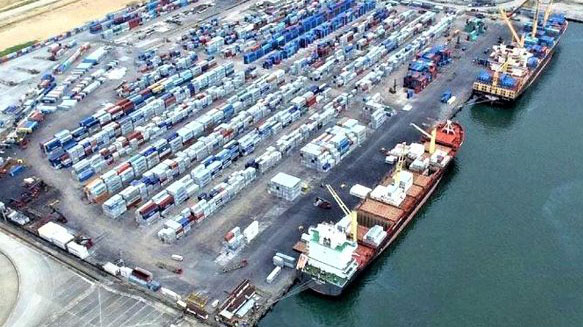•MAN laments high cost of borrowing
The Organised Private Sector of Nigeria (OPSN) has warned that the National Assembly to stop the proposed amendment to the Customs, Excise and Tariff Bill, which seeks to impose a 20 per cent levy on non-alcoholic drinks (NADs), saying it contradicts the Federal Government’s fiscal reform agenda and could further strain Federation Account Allocation Committee (FAAC) revenues.
According to the group, Nigeria’s non-alcoholic drink industry remains a critical economic stabiliser, supporting 1.5 million jobs, advancing backward integration under the Nigeria Sugar Master Plan II (NSMP II), and contributing 40 to 45 per cent of gross revenues as taxes, yet it is already operating under severe macroeconomic pressure.
The OPSN argued that Nigeria’s excise system has become increasingly fragmented, with new taxes and levies introduced without proper coordination or assessment of their combined economic impact.
The group warned that the proposed levy could reverse key reform gains of President Bola Tinubu’s administration without delivering measurable public health benefits.
These concerns were contained in a position paper submitted during the National Assembly’s public hearing on the proposed amendment bill, which recently passed its second reading in the National Assembly.
The OPSN comprises the Nigerian Association of Chambers of Commerce, Industry, Mines and Agriculture (NACCIMA), Manufacturers Association of Nigeria (MAN), Nigeria Employers’ Consultative Association (NECA), National Association of Small and Medium Enterprises (NASME) and the National Association of Small Scale Industrialists (NASSI).
The group faulted lawmakers for pushing the amendment without coordination with the Ministry of Finance, the Presidential Fiscal Policy and Tax Reform Committee, FAAC, and other relevant agencies.
The manufacturers further noted that the bill contradicts the administration’s commitment to a tax system built on stability, predictability simplicity and minimal disruption.
The OPSN urged the National Assembly to withdraw the proposal and maintain current excise rates on non-alcoholic drinks, saying the draft amendment contains legal, mathematical and administrative inconsistencies that make implementation difficult.
The group further warned that excessive taxation could shrink the formal sector, reduce Value Added Tax (VAT) and Company Income Tax (CIT) collections and push consumers toward informal markets.
The group stressed that the non-alcoholic drinks industry is committed to supporting government revenue and public health goals, but emphasised that fiscal policies must be holistic, harmonised and appropriate for Nigeria’s economic realities.
It, however, argued that poorly designed tax increases would raise production costs, reduce capacity utilisation, increase retail prices, and worsen inflationary pressures already affecting households and small businesses.
The group further warned that the amendment threatens the beverage value chain one of Nigeria’s strongest non-oil revenue contributors and major employers.
However, industry experts added that the levy could undermine the Federal Government’s ease of doing business objectives at a sensitive time for the economy.
Citing global and domestic evidence, the OPSN noted that steep or unclear Sugar-Sweetened Beverage (SSB) taxes in low-income economies often lead to job losses, contraction of micro, small and medium enterprises (MSMEs), reduced government revenue, and no clear public health improvements, while widening inequality and expanding informal markets.
The group reiterated its willingness to continue engaging lawmakers, fiscal authorities and civil society to develop an excise regime that supports investment, protects jobs and ensures long-term revenue stability.
Meanwhile, the Manufacturers Association of Nigeria (MAN) said the current borrowing cost, ranging from 30 to 37 per cent, is unbearably high for manufacturers and hindering production and competitiveness.
Reacting to the apex bank’s decision to maintain the monetary policy rate (MPR) at 27 per cent at its last meeting on Monday, the association’s Director-General, Segun Ajayi-Kadir, noted that it was unfavourable to manufacturers, adding that the cost of credit remained one of the biggest constraints.
He said he expected a reduction in the rate to reduce the cost of borrowing for manufacturers.
The DG noted that while the Central Bank emphasised exchange rate stability and improved forex liquidity, it is essential to reduce the cost of funds to encourage borrowing for expansion and investment.
He said persistent high lending rates would limit access to affordable credit for manufacturers, especially those within the SMI cadre.
He further noted that the situation is complicated with prevailing structural challenges like poor infrastructure, high logistics costs, inadequate electricity supply, high energy costs and insecurity that cumulatively raise production costs and weaken competitiveness.
He urged policymakers to, instead of alienating them, pursue policies that foster inclusive growth, incentivise manufacturing and address binding constraints limiting the sector’s performance.
“The CBN should also strengthen its handshake with the fiscal authority to promote reforms capable of unlocking the full potential of the manufacturing sector,” he said.






